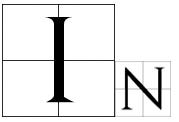Member-only story
Why the King of England Banned Coffee
And how his ban failed miserably
 In 1652, an enterprising dealer started selling a new drug out of an alley in London. The drug promised its users extra energy, focus, and alertness. The dealer made a lot of money — the stimulant he sold was a big hit. Its users soon became addicted and came back again and again. Soon copycats were importing the stuff; the drug was everywhere on London’s streets. Addicts began to organize their social lives around the drug’s consumption, spending their afternoons in special places built just for ingesting it. It’s no wonder that the government eventually moved to ban the stuff. I’m writing, of course, about the scourge of coffee in British society.
In 1652, an enterprising dealer started selling a new drug out of an alley in London. The drug promised its users extra energy, focus, and alertness. The dealer made a lot of money — the stimulant he sold was a big hit. Its users soon became addicted and came back again and again. Soon copycats were importing the stuff; the drug was everywhere on London’s streets. Addicts began to organize their social lives around the drug’s consumption, spending their afternoons in special places built just for ingesting it. It’s no wonder that the government eventually moved to ban the stuff. I’m writing, of course, about the scourge of coffee in British society.
Coffee likely originated in east Africa sometime in the 9th century CE. The folktales tell of a goatherder who noticed that, after his animals ate some coffee beans, they became unusually energetic, dancing around the pasture. Whatever its actual origins, the drink quickly spread around the world in the early modern period. It had become commonplace in the Middle East by the 1500s; there was a coffeehouse in Rome by 1645. Seven years later it was in England.
Why did the British crown try to ban coffee? It wasn’t so much the drink as the culture that emerged around it. In England, coffeehouses became public gathering places where…
